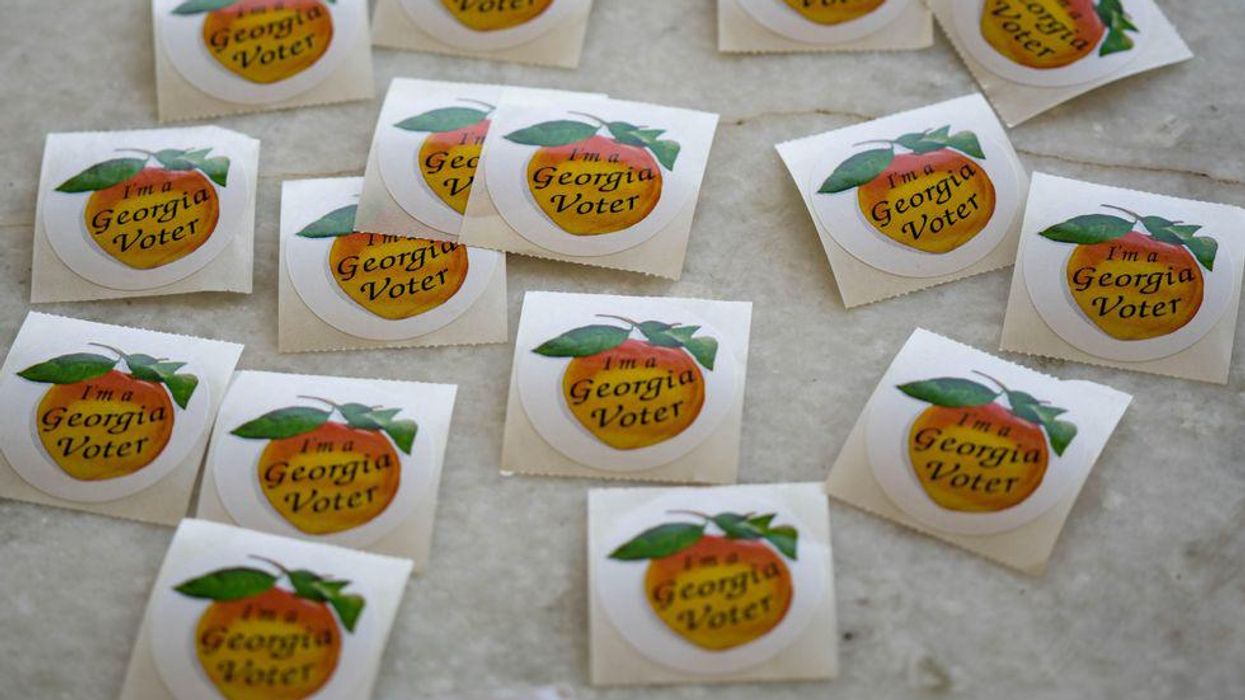On Sept. 17, Georgia’s election board voted to hand-count all ballots cast at polling places across the state’s 159 counties on Election Day, contrary to the legal opinion of the Georgia attorney general and the advice of the secretary of state.
Attorney General Chris Carr, a Republican, challenged the validity of the decision in a letter to the elections board:
"There are thus no provisions in the statutes cited in support of these proposed rules that permit counting the number of ballots by hand at the precinct level prior to delivery to the election superintendent for tabulation. Accordingly, these proposed rules are not tethered to any statute — and are, therefore, likely the precise type of impermissible legislation that agencies cannot do."
Election Board Chairman John Fervier, a Republican, voted against the rule change, saying the "overwhelming number of election officials" who reached out to him were opposed to the change and passing the measure would be ignoring the advice of the board’s counsel.
"I do think it's too close to the election," Fervier said. "It's too late to train a lot of poll workers."
An important fact about this ruling has not been very clear in press coverage: The rule requires counting the number of ballots, to check that the total matches the number shown on tabulators, not the votes. It does not mean officials will hand count the votes for different candidates in all the different races. Nevertheless, this new rule threatens to inject delay and confusion into what should be a standard process. Georgia law has clear deadlines for state and local certification — deadlines that may be threatened by the new requirements.
A number of independent elections experts have spoken out against the board’s ruling.
Damon Hewitt, president and executive director of the Lawyers’ Committee for Civil Rights Under Law:
“This move by the Georgia Election Board appears to be yet another in a series of ploys to endanger our democratic process. Requiring hand-counting of all votes cast in every polling place across Georgia on Election Day serves no one except those who want to promote chaos. The rule is contrary to Georgia law and risks delaying the counting of the votes to the extent that Georgia could miss the certification deadline for the presidential election. Rather than ensuring the accuracy of the vote, the State Election Board’s action may lead to the votes of every Georgian not counting at all in this consequential election. That is the antithesis of democracy.”
Kevin Johnson, executive director of the Election Reformers Network:
“Unfortunately, there are questions that arise about motivation and partisanship behind this ruling, given the unethical decision by a Board member to attend a campaign rally in support of a presidential candidate. Boards need to be seen as neutral, and Georgia and other states probably need to consider reforms to the structure and ethics of election boards to achieve that neutrality.”
The situation is fluid and the final process is unclear. The Fulcrum will watch in the coming weeks as the specifics of the new hand counting process unfolds as a part of our Election Overtime coverage. Between now and the conclusion of the presidential election, we will counter false narratives about elections being corrupt or stolen.
We understand the public will need a deep understanding of the rules of “election overtime” and through our partnership with the Election Reformers Network we will serve as a valuable resource to provide our readers with up-to-date, accurate information as to how the process of validating close elections works.
“The more people know about the rules of elections, the more they see the guardrails that protect results,” Johnson said. “That’s true in the case of the Georgia Board as well. Georgia law is very clear about the deadlines for state and local certification, and that creates legal avenues to challenge any rules that could put timely election results in Georgia in jeopardy.”




















Marco Rubio is the only adult left in the room